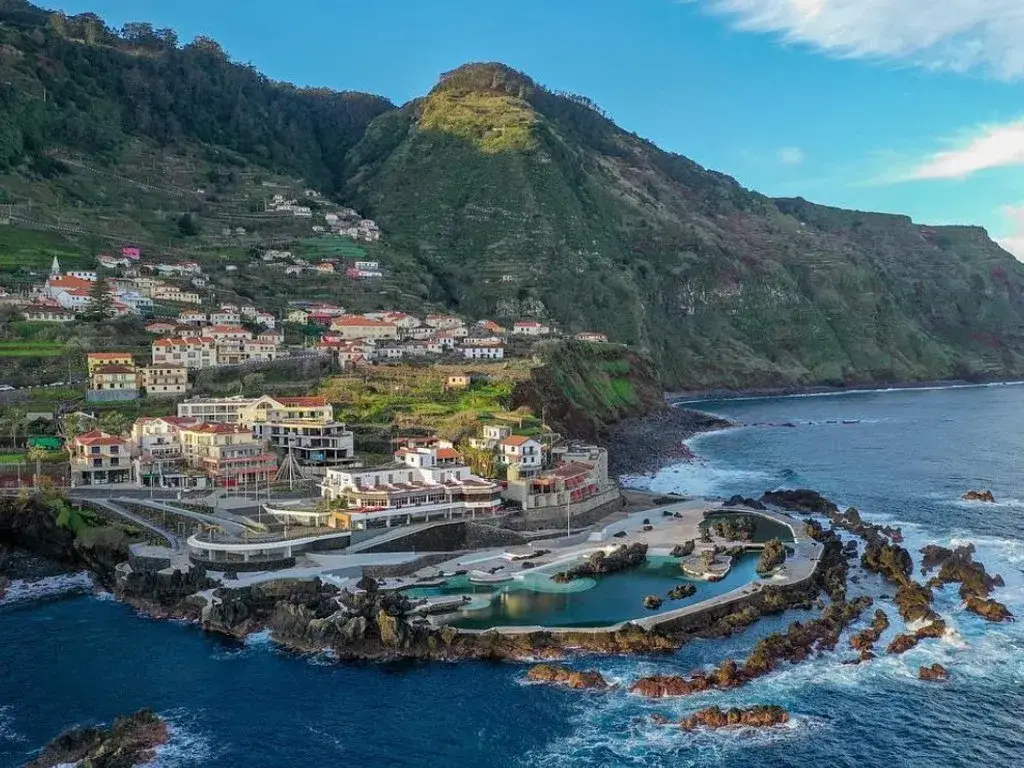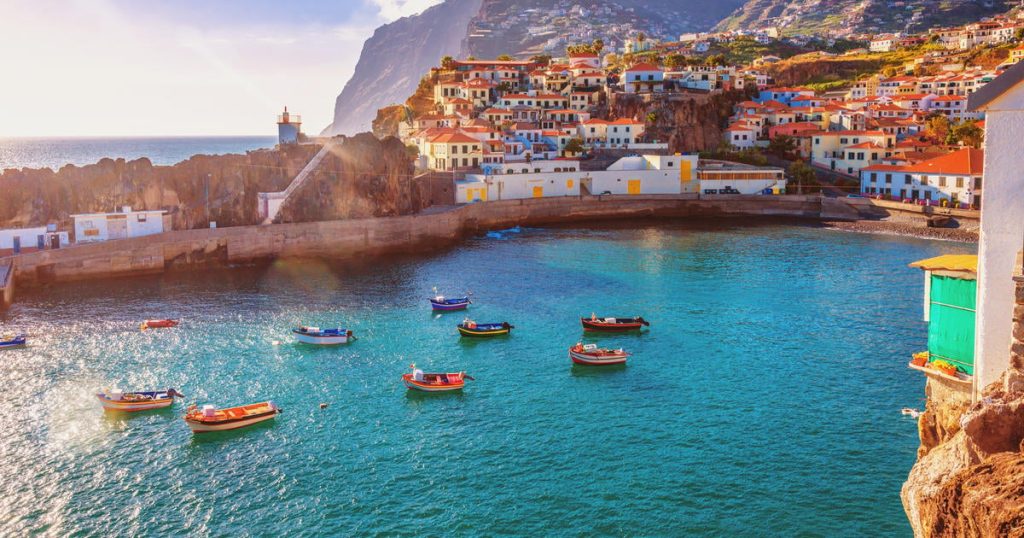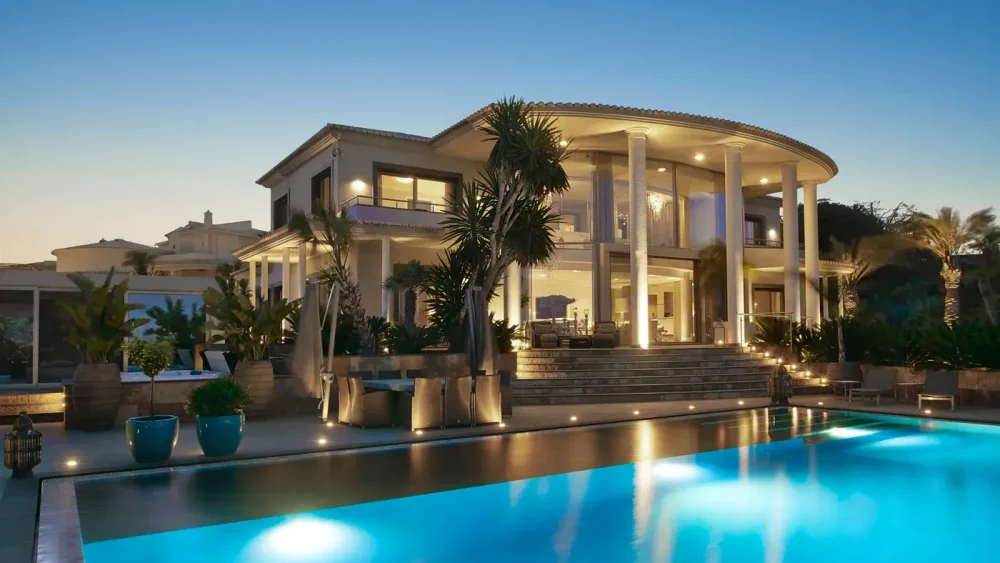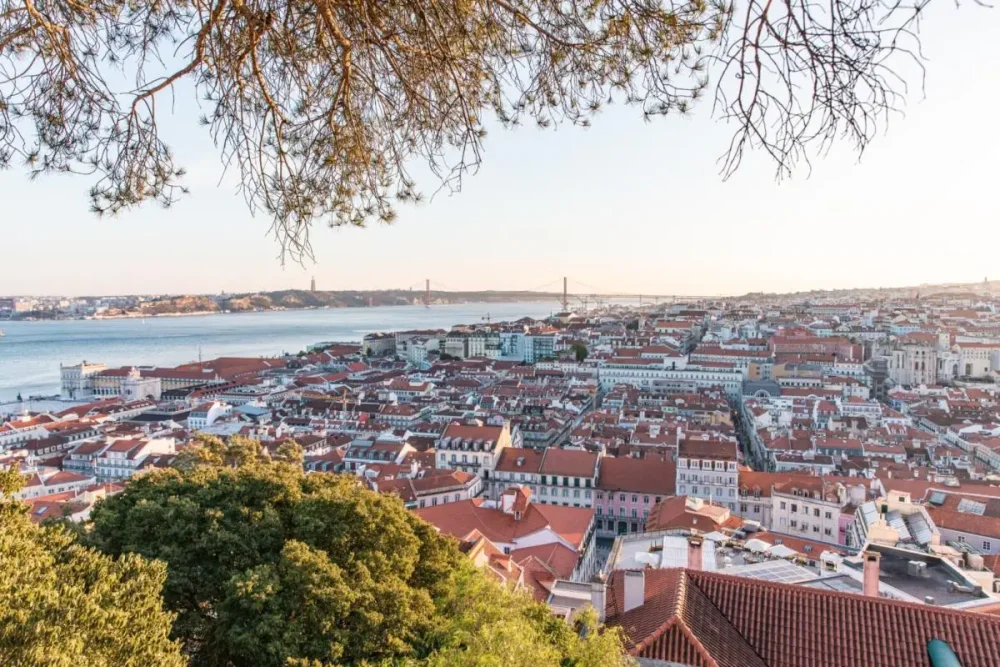“Flowering Island” of Portugal represents an ideal place to live and holiday, thanks to its comfortable climate, low taxation and high quality of services. Many foreign nationals from all over the world are considering moving to Madeira in order to obtain permanent residence (Permanent Residence) or residence permit, benefit from all the advantages of residence, favourable tax incentives and enjoy a comfortable life surrounded by beautiful natural scenery.
The pros of living in Madeira: what attracts people to live in Madeira
Madeira attracts attention not only for its nature, but also for its developed infrastructure, mild climate and advantages for people working in technology and business. The island has become a real find for digital nomads, retirees and families looking for a better place to live. The stable climate as well as favourable conditions for business and investment attract more and more people who want to start a new life in Europe.
Climate and nature
The climate on the island is one of the most attractive factors for those looking for the perfect place to live. With mild temperatures all year round, where winters are not too cold and summers are moderately hot, the location provides comfortable living conditions. Madeira is immersed in greenery, making it an ideal destination for nature lovers, hikers and outdoor enthusiasts. Especially appreciated by tourists and locals are phenomena such as the Laurel Forests, a UNESCO World Heritage Site, as well as picturesque volcanic beaches and high mountain trails.
Tax benefits and immigration programmes: attractive conditions for relocation
Madeira represents a part of Portugal, but at the same time has peculiarities in the tax system that make the island attractive to investors and residents interested in favourable tax benefits. The territory actively attracts foreign citizens, offering opportunities for residence permits and permanent residence. One of the most popular programmes is the Golden Visa (Golden Visa), which allows you to invest in real estate or set up a business on the island and, at the same time, receive the right to a long-term stay in the country.
Property for living and investment in Madeira: prices, options, pros for investors
The property market in Madeira is well worth a look. There is a wide range of accommodation, from traditional Maltese houses to modern condominiums, giving you the opportunity to choose from a variety of options depending on your preferences and finances. Property prices here are considerably lower than in most European capitals. The average cost of housing varies from €1,500 to €2,500 per square metre depending on the location. For example, flats in the centre of Funchal (the island’s capital) or near the beaches tend to be more expensive. At the same time, investing in housing outside the city limits or in less popular areas can be profitable, such properties promise good prospects for value growth in the future.
Buying property in Madeira is not only an opportunity to improve your quality of life, but also a profitable investment. Many foreign investors choose the location due to its strategic location, favourable rental conditions and stable growth in property prices.
Digital nomads and remote working in Madeira
Madeira is becoming a popular destination for digital nomads thanks to its excellent climate, internet availability and unique infrastructure for remote working. The island offers not only beautiful scenery, but also co-working spaces, cafes and places to socialise, making life here convenient for professionals working in technology, marketing and business.
Linked to this is the creation of a special programme for digital nomads and freelancers, offering special benefits and support for those who choose to live and work in Madeira. The project includes tax advantages and support for start-ups, as well as facilities for setting up a business in certain neighbourhoods.
Moving to Madeira in 2025: what you need to know
 In recent years, moving to Madeira has become popular with people seeking a quality of life and favourable working conditions. The island is a great option for those who want to live in Europe without facing the high cost of living in cities such as Lisbon or Barcelona. Moving to Madeira in 2025 will be relevant not only for investors, but also for people who want a fresh start.
In recent years, moving to Madeira has become popular with people seeking a quality of life and favourable working conditions. The island is a great option for those who want to live in Europe without facing the high cost of living in cities such as Lisbon or Barcelona. Moving to Madeira in 2025 will be relevant not only for investors, but also for people who want a fresh start.
But, as in any other place, life here has its nuances. For example, the limited availability of some goods and services can be a challenge for those who are used to a large assortment in large metropolises. You also have to take into account the high cost of certain services, which can affect the overall budget. But for people who are oriented towards a quiet life in a picturesque location with excellent nature and low taxes, Madeira will be an ideal choice.
The main advantages of living in Madeira:
- Beautiful year round climate, ideal for those who don’t want to endure harsh winters.
- Opportunity to take advantage of tax incentives and create a business with minimal taxes.
- Great environment for remote work and freelancers.
- Developed infrastructure for a comfortable life: high quality medical services, convenient transport links, well-developed network of shops and restaurants.
The main disadvantages of living in Madeira:

- Some limited opportunities for professionals in specific fields.
- Higher cost of living compared to other Portuguese regions.
Conclusion
 Madeira represents an excellent choice for those who want to enjoy the perks of comfortable living, warm climate, convenient infrastructure and favourable tax incentives. Moving to the island will be a favourable decision for digital nomads, investors and those who want to travel to the most picturesque corner of Europe. There are plenty of opportunities for personal and professional growth in an atmosphere of nature, sunshine and tranquillity.
Madeira represents an excellent choice for those who want to enjoy the perks of comfortable living, warm climate, convenient infrastructure and favourable tax incentives. Moving to the island will be a favourable decision for digital nomads, investors and those who want to travel to the most picturesque corner of Europe. There are plenty of opportunities for personal and professional growth in an atmosphere of nature, sunshine and tranquillity.

 en
en  ru
ru  de
de  ar
ar  es
es  nl
nl  hi
hi  fr
fr  it
it  pt
pt  el
el 











